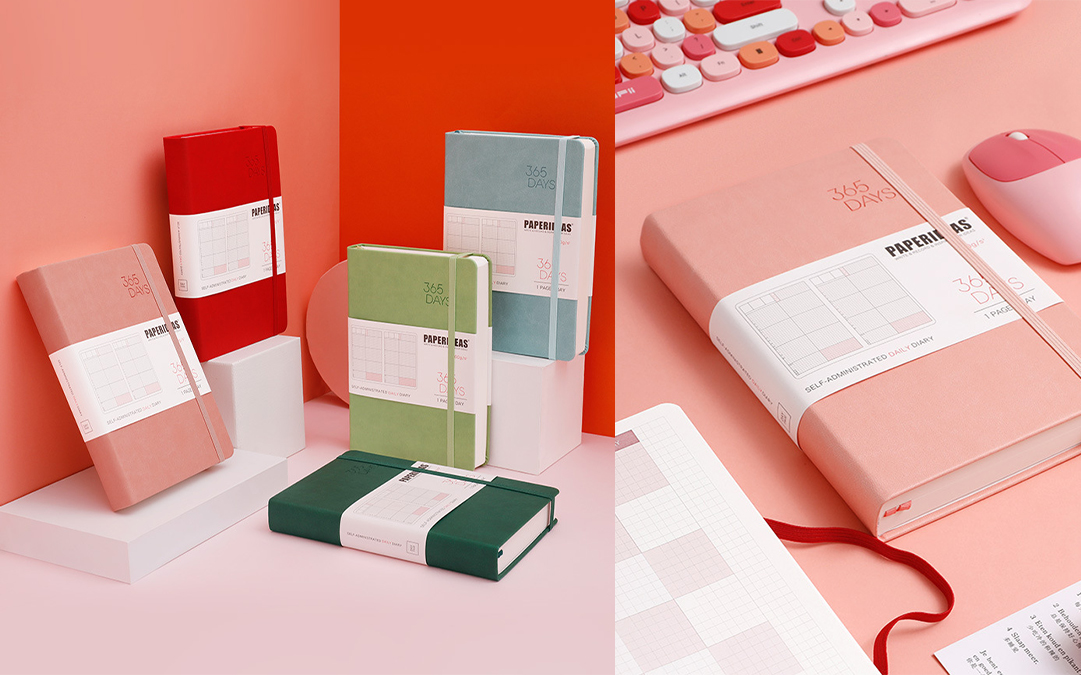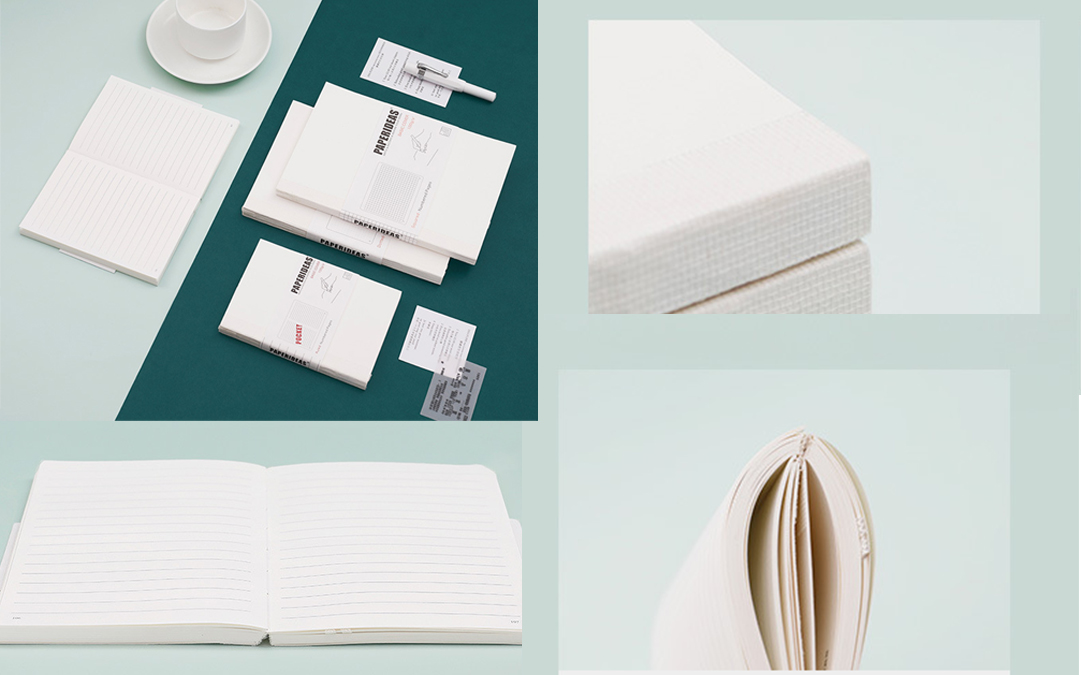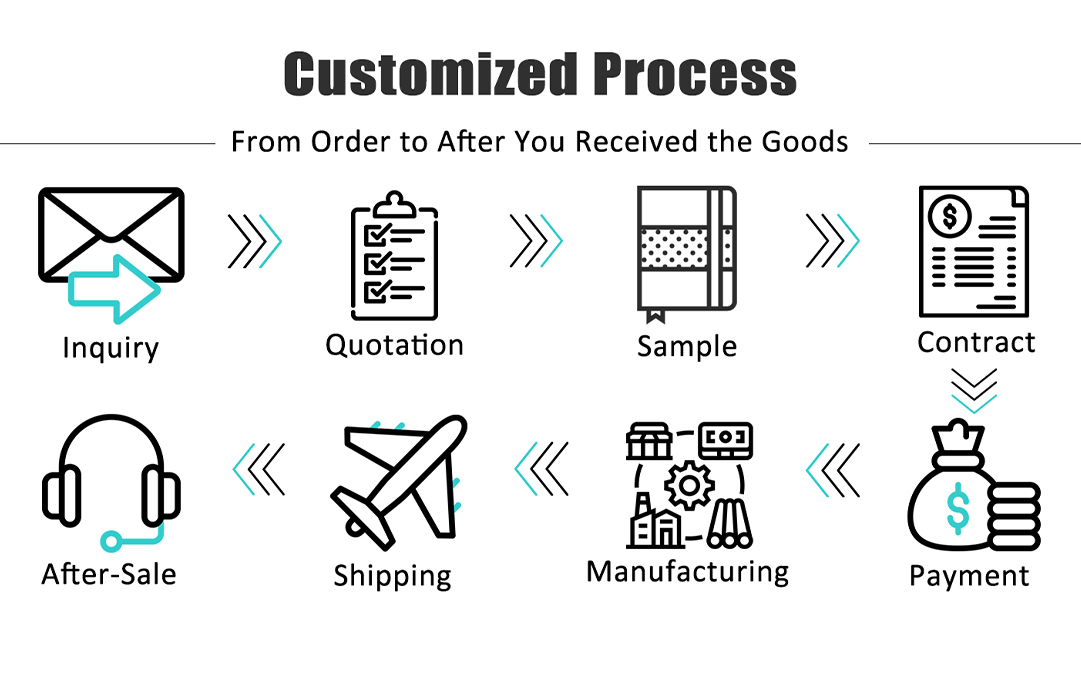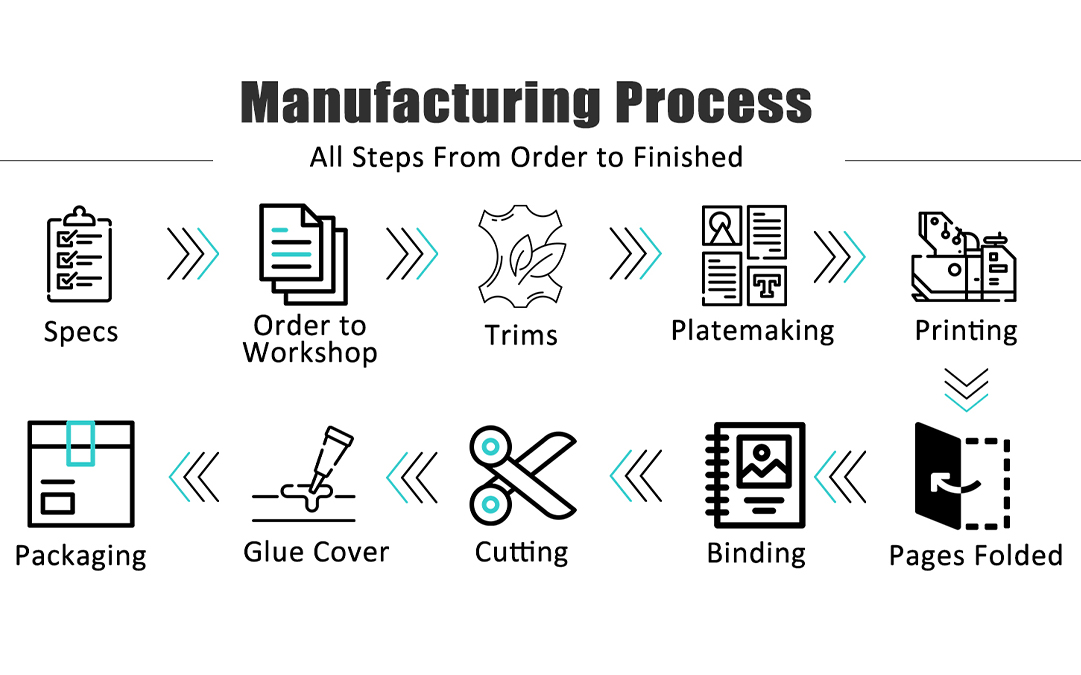Environmental Considerations in Custom Manufacturing Notebooks: A Sustainable Approach
In today’s world, sustainability is more important than ever, especially in Manufacturing Notebooks, and this applies to every aspect of our lives, including how we produce and consume printed materials. As a dedicated provider of custom notebook print services, I take environmental considerations seriously. Whether you’re looking to print your own notebook, A5 planner, or order custom notepads in bulk, it’s crucial to make choices that minimize environmental impact. Here are the key environmental factors to consider when printing custom notebooks.
1. Sustainable Paper Sourcing in Manufacturing Notebooks
The foundation of any notebook is its paper. For custom notebook print projects, I ensure that the paper is sourced sustainably. This means using paper from forests that are managed responsibly, often certified by organizations such as the Forest Stewardship Council (FSC). Sustainable paper sourcing is critical in reducing deforestation and promoting biodiversity. Another excellent option is recycled paper. By choosing recycled paper for your custom A5 planner or other notebook products, you can significantly reduce the amount of new raw material needed, conserving natural resources and reducing energy consumption. This approach not only benefits the environment but also aligns with the increasing consumer demand for eco-friendly products.
2. Use Eco-Friendly Inks to Manufacturing Notebooks
Inks play a significant role in the Manufacturing Notebooks process, and traditional petroleum-based inks can be harmful to the environment. For my custom notebook print and custom planner printing services, I opt for vegetable-based or soy-based inks. These inks are less toxic and decompose more easily, reducing their environmental impact. Additionally, they produce vibrant colors and high-quality prints, ensuring that your custom journals and planners look fantastic. By avoiding inks that contain heavy metals and volatile organic compounds (VOCs), I ensure that the printing process is safer for both the environment and the people involved in the production.
3. Energy Efficiency in Printing
Printing can be an energy-intensive process. To mitigate this, I focus on energy efficiency at every step. This includes using energy-efficient printing presses and optimizing print runs to maximize efficiency. For instance, when producing custom Manufacturing Notebooks or cheap custom notebooks, I schedule print jobs to minimize downtime and reduce energy consumption. Additionally, I collaborate with printing facilities that utilize renewable energy sources, such as solar or wind power. These efforts help reduce the carbon footprint associated with notebook printing, contributing to a more sustainable industry overall.
4. Waste Management
Effective waste management is crucial in the printing industry. In my operations, I strive to minimize waste through careful planning and optimization. This includes using digital proofing to reduce the number of test prints and optimizing layouts to make the most of each sheet of paper. Any waste that is generated is meticulously sorted and recycled whenever possible. By implementing strict waste management protocols, I can significantly reduce the environmental impact of custom notebook print and other print-on-demand notebook services. Working with suppliers who have robust recycling programs ensures that materials are reused rather than ending up in landfills.
5. Packaging Materials for Manufacturing Notebooks
Packaging is an often-overlooked aspect of sustainability in notebook printing. For custom notebook print orders, I choose biodegradable or recyclable packaging materials. This includes using recycled cardboard and biodegradable plastics, which help reduce waste and pollution. When packaging custom pens and notepads or custom notebooks in bulk, I aim for minimal but protective designs, ensuring that products reach customers in perfect condition without excessive use of materials. Prioritizing eco-friendly packaging materials helps create a more sustainable supply chain and reduces the overall environmental footprint.
6. Transportation and Logistics After Manufacturing Notebooks
Transportation is a significant contributor to the carbon footprint of printed products. To address this, I work with logistics partners who prioritize sustainable practices. This includes using fuel-efficient vehicles, optimizing delivery routes, and consolidating shipments to reduce the number of trips required. Whether delivering custom planners from a planner manufacturer or bulk orders of personalized notepads, efficient logistics play a critical role in minimizing environmental impact. Additionally, I explore carbon offset programs to neutralize the emissions associated with transportation, ensuring that the delivery process is as eco-friendly as possible.
7. Water-Based Coatings
Coatings and finishes enhance the appearance and durability of printed notebooks. For custom planner printing and custom journal printing, I prefer water-based coatings over solvent-based ones. Water-based coatings emit fewer VOCs and are easier to recycle, making them a more environmentally friendly option. These coatings provide a high-quality finish without compromising durability, ensuring that custom A5 planners and notebooks not only look professional but are also safer for the environment. By choosing eco-friendly coatings, I contribute to reducing the overall environmental impact of the printing process.
8. Reducing Overproduction
Overproduction is a common issue in the printing industry, leading to wasted resources and excess inventory. To combat this, I adopt a print-on-demand approach where feasible. This means printing only the number of notebooks required, reducing waste and ensuring efficient use of resources. Whether it’s for custom notebook print or custom notepads bulk orders, managing production volumes carefully helps minimize environmental impact. Utilizing digital printing technologies also allows for greater flexibility and reduces the need for large print runs, further supporting sustainable practices.
9. Lifecycle Analysis
Understanding the full lifecycle of a product is essential for identifying and mitigating environmental impacts. I conduct lifecycle analyses for various materials and processes used in custom notebook print and custom planner printing. This helps me make informed decisions about which options are most sustainable. By considering the entire lifecycle—from resource extraction and manufacturing to transportation, usage, and end-of-life disposal—I continuously improve the environmental performance of my products. This holistic approach ensures that every stage of the notebook’s life is as eco-friendly as possible.
10. Educating Customers
Educating customers about the environmental considerations in notebook printing is a crucial part of my mission. By providing information on sustainable materials and practices, I empower customers to make informed choices. This includes highlighting the benefits of eco-friendly options and explaining the steps taken to reduce environmental impact. Whether customers are looking to print their own notebook, order custom planners from a custom planner manufacturer, or buy cheap custom notebooks in bulk, understanding the environmental implications helps drive broader change within the industry. Promoting sustainable choices encourages more environmentally responsible behavior and supports the shift towards a greener future.
Conclusion
Incorporating environmental considerations into custom notebook print and other printing services is not just a trend but a necessary step towards sustainability. By focusing on sustainable paper sourcing, eco-friendly inks, energy efficiency, waste management, and more, I ensure that my products meet high environmental standards. Whether you’re looking for online notebook printing, OEM notebook print, or custom pens and notepads, these practices help reduce the overall environmental footprint. Together, we can create beautiful, functional notebooks and planners while taking care of our planet.
Contact Us: Ms. Rimo Lau





